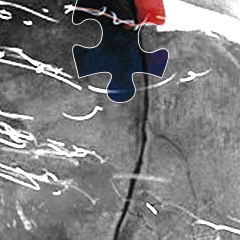Targeted Competencies
Project management processes, tools and techniques
Working with multi-disciplinary teams
Having an integration perspective
Institutional change management
Decision making in the face of conflicting organizational needs
Contents
Introduction
Working with projects
What is project success?
Managing business processes with projects
Project management processes
Project initiation processes
What do projects come from?
Who are these stakeholders?
Project planning processes
Describing
Estimation
Planning
Project execution processes
Implementation of plans
Managing the team
Uncertainty and risk
Information and communication management
Oh, are the stakeholders happy?
Project monitoring and control processes
Monitoring and control of project processes
Corrective actions and change management
Project closing processes
Where do projects go?
In our training sessions, adult learning system supported training methodology is applied through case studies, personal exercises, group exercises, role playing, discussions, psychometric tests and games to ensure the highest retention in participants.
Pre-Training
Static Analysis
Inventory studies
Pulse surveys
Dynamic Analysis
Interviews with senior management
Focus groups
Participant pre-work
Reading materials, mini videos
During Training
In our training sessions, adult learning methodology is applied through case studies, personal exercises, group exercises, role playing, discussions, psychometric tests and games in order to provide the highest learning in the participants.
Post-Training
Reading materials and videos are provided in order to support internalizing and applying the training subject.
Tools
- Development Roundtables and Action Planning
- Telephone Coaching – Turning Learning Into Action “TLA”
- Shadow Coaching
- One-on-one Follow-up Coaching
Development Roundtables and Action Planning:
Action Planning is the planning of actions to be made after training to make use of the training subject. This is done separately by each participant who implement the new behaviors.
About one month after training, the participant and the trainer get together again in a Development Roundtable session to review the successes and challenges during this month. This includes:
- What was implemented, what was not implemented and why
- Working on participants’ actual work cases
- Feedback on action plans
Development of new action plans
Telephone Coaching – Turning Learning Into Action “TLA”:
Consists of three monthly half-hour telephone coaching sessions which support participants after training in three development areas. Each participant determines their own development areas and defines the corresponding action plans.
After the sessions are completed, the results are reported.
Shadow Coaching:
The coach accompanies the participant in the job environment, makes observations and provides feedback regarding especially development areas.
The participant is provided with increased awareness and is able to implement actions and reach goals more easily.
One-on-one Follow-up Coaching:
Consists of coaching sessions on development areas which are based on the participant’s actual work cases.
Might also be interested in:


